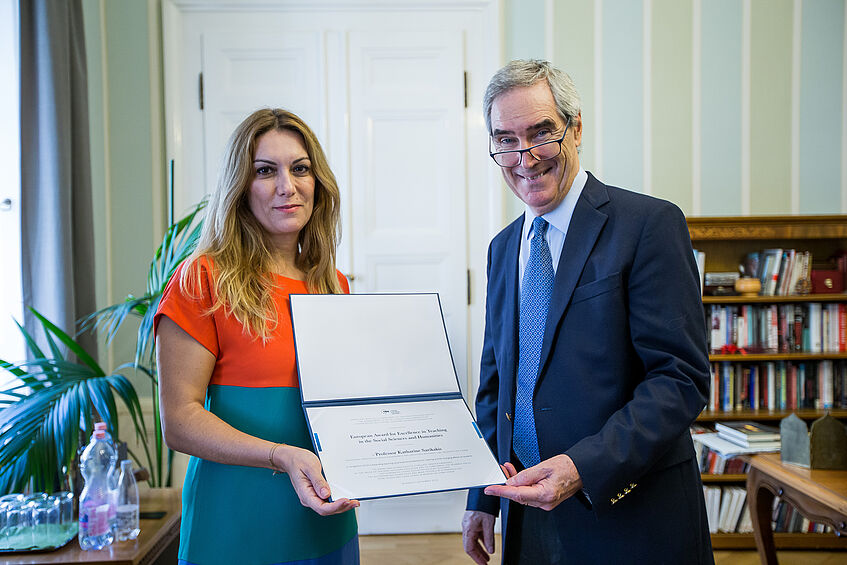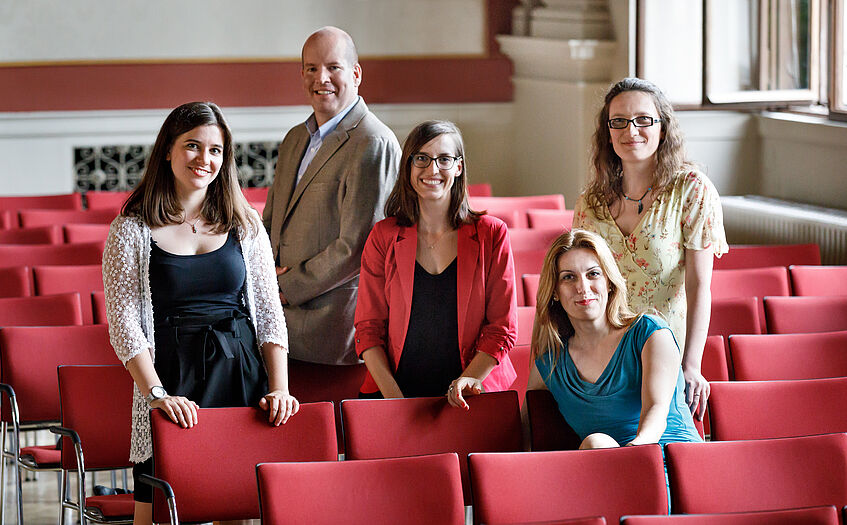Awards for excellence in teaching
European Teaching Award 2018
Professor Sarikakis was the 2018 European Award for Excellence in Teaching in the Social Sciences and Humanities recipient. This award honours the life work achievements and teaching philosophy of scholars in the Social Sciences and the Humanities. Katharine's teaching and paedagogical philosophy centres around the development of understandings and agency of citizenship, as an encompassing term for active participation in public life; the connection of academic and scientific subject matter expertise to real world problems and their solution; the inclusivity of voices and experiences; and the attention to life experience being honoured into the teaching, learning and research process.
credits first photo: CEU


UNIVIE Teaching Award 2018
The University of Vienna's Rectorate awarded Professor Sarikakis the UNIVIE Teaching Award 2018 (category: problem solving) for her work with a research class during the 2017 summer semester. The course, the collection of the material and the work on the report was supported by Izabela Korbiel, Anna Gerhardus (our former Teaching Assistant) and the students represented by Ricarda Kargl who attended the course.
The award ceremony took place in the small celebration hall of the university's main building on June 13, 2018.
You can access more information on the award on the website of Center for Teaching and Learning (CTL). Additionally, you will find the kind words of Anna and the students as well as Professor Sarikakis's presentation here.
Please also check out the news item on the website of our home department, the Department of Communication.
Nomination for State Award for Excellence in Teaching
In 2019 Professor Sarikakis was a nominee for the Austrian State Award for Excellence in Teaching Ars Docenti for her course on structural limitations on freedom of expression
Ziele
- Theorie und Methode praktisch umsetzen können;
- Theorie und Methode als Instrumente der Problemlösung in der „realen Welt“ anwenden können;
- Autonomie und Verantwortung für das eigene Lernen zu übernehmen und Engagement für das Team zu zeigen;
- Konzepte neu bearbeiten zu lernen, verknüpft mit dem politischen, sozialen und gesetzlichen Kontext;
- Internationalisierung als eine Art verbreiteten Denkens zu verstehen, die auch „zu Hause“ stattfinden kann;
- Diverse Biographien der Studierenden (Sprache, kulturelle Kenntnis usw.) als Vorteil schätzen und anwenden lernen."
